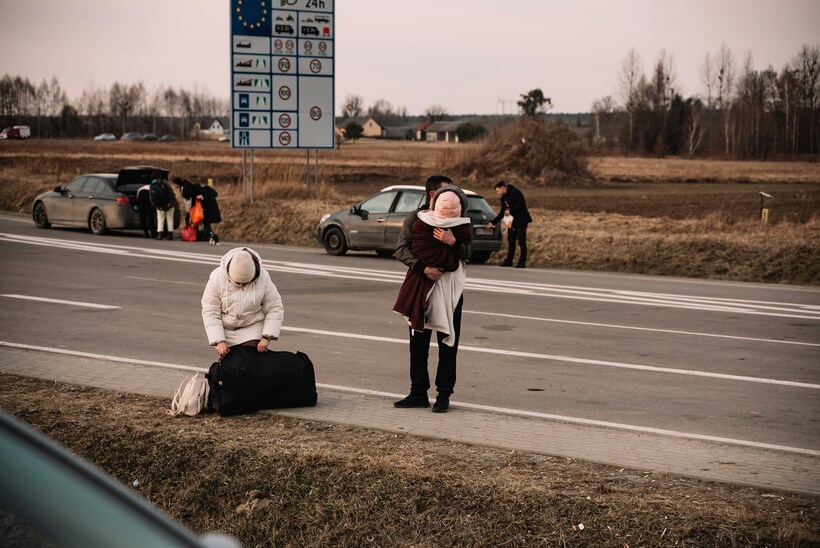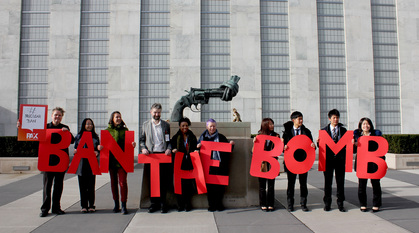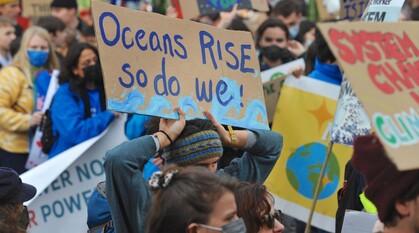The government’s new asylum policy: a weapon of mass distraction
Grace Da Costa challenges the government's new asylum reforms, and shares some actions we can take to call for a more inclusive and humane asylum system.

On 17 November 2025 the Home Secretary, Shabana Mahmood, announced sweeping reforms to the UK's asylum and returns policy. She warned that 'illegal migration' was 'tearing the country apart' and that 'dark forces are stirring up anger'.
She certainly stirred up my anger! I believe she set the government firmly in line with the far-right's narrative that migrants are to blame for our country's problems. Instead of fixing the real problems, she is punishing some of the most vulnerable people in our society and driving them further towards destitution. This will benefit no-one and harm us all.
Our duty to offer sanctuary
The UK has a legal and moral duty to offer asylum to people fleeing war and persecution. So-called 'illegal migrants' often come through unlawful means to have their asylum claims considered because of the shocking lack of legal routes.
Quakers in Britain believe that every person should be treated with dignity and compassion. Quakers strive to offer sanctuary to migrants, refugees and people seeking asylum across the country. The members of the Quaker Asylum and Refugee Network (QARN) and Sanctuary Meetings are tireless in this work.
The reforms
The full list of changes announced to the asylum system can be found on the government website, but they include:
- Introducing a temporary refugee status of 30 months instead of five years
- Removing the automatic path to settlement and making settlement possible only after 20 years
- Making it easier to deport people, including families, who aren't granted asylum or whose countries are deemed to have become 'safe'
- End the legal duty to provide support and move to a discretionary system, including requiring contributions from people with assets
- Eliminating hotel accommodation for asylum seekers, which in practice means greater use of large-scale and military accommodation sites
There are so many devastating implications for the people involved that I don't know where to begin. I can only imagine a family who have risked their lives to flee a war zone and come to the UK. They have their last remaining valuables taken from them. They're sent to live on a semi-derelict military base and face further uncertainty, poverty, and humiliation. They are detained indefinitely without trial and then deported back. What has our country gained from this? And what have we lost?
The real problem
For me there are three glaring issues that the government is failing to address with its approach to immigration and asylum.
First, that our country has a duty to migrants who come here because of the impact of historic and ongoing British imperialism around the world. Britain is seen as a destination for migration because it sold itself as beacon of wealth and democracy, imposed its language and culture on other countries, and continues to inflict poverty and violence through its approach to trade, defence, foreign policy and fossil fuels.
Second, that migrants are not to blame for our country's problems – the problems lie in economic inequality. People are rightly angry that there is a cost-of-living crisis, in which wages, job security and public services all seem totally inadequate to provide us with a decent quality of life.
Meanwhile, wealthy individuals and corporations are making money from the very activities that are fuelling this crisis and harming the most vulnerable people in our society, including arms, fossil fuels, and our immigration and asylum system.
For example, an asylum hotel provider made £180m profit since being awarded government contracts, despite allegations of “terrible" conditions at its hotels. The companies G4S, Mitie and Serco all make significant profits from running 'immigration removal centres' where migrants are detained indefinitely without trial.
The problem for me is that the government is putting money into contracts and subsidies that benefit rich individuals and corporations rather than taxing those rich individuals and corporations to pay for the public services that we all need.
Third, it follows that the solutions don't lie in tackling migration, but in tackling economic inequality and investing in the things that really matter. If the government were to tax wealth and polluters' profits, it could spend more money on the public services that people believe are failing because of immigration. If it invested in renewable energy and insulation rather than arms and fossil fuels, it could reduce energy bills and improve quality of life, so people didn't feel the need to find someone to blame for the cost-of-living crisis.
What we can do
As well as taking part in broader campaigns about taxing wealth and polluters' profits, there are some specific things we can all do about the immediate threat of these asylum reforms:
- Respond to the government's consultation on the earnt settlement proposals expressing your disagreement with their principles and their content.
- Write to your MP about the proposals using Together With Refugees' online tool.
- Try to improve community cohesion by joining local and national events run by organisations such as HOPE not Hate, Together with Refugees and local interfaith associations.
- Offer practical support to migrants and refugees in your community where possible, for example by taking part in community sponsorship and donating to foodbanks.
We must continue to advocate for a compassionate and diverse society where everyone can flourish.


